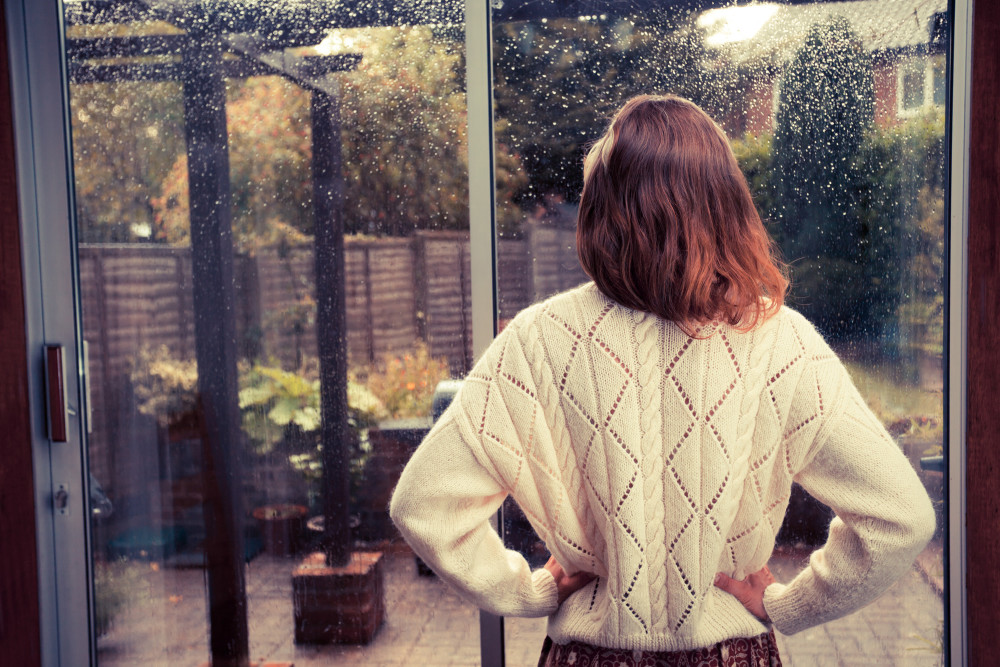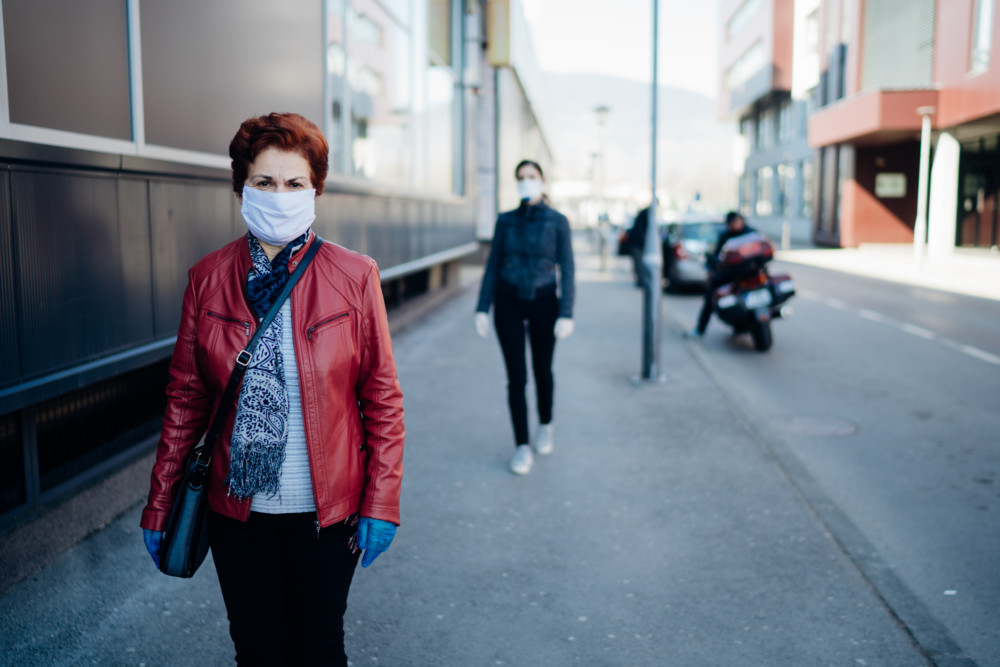By Hannah Dellinger
Houston Chronicle
WWR Article Summary (tl;dr) As people across the country are forced to shelter in place, one TX law enforcement official pointed to a rise in calls regarding domestic violence, saying, “Some will die not from the COVID-19 virus, but instead at the hands of an intimate partner and domestic violence.”
Houston
Domestic violence victims are reporting abuse cases at a higher rate in the Houston region since COVID-19 stay-at-home orders took effect in area counties last month, advocates and law enforcement officials say.
There’s been a significant increase in the number of domestic violence hotline calls and requests for emergency housing since social isolation became Houston’s new normal in early March, shelters in the region are reporting.
The number of domestic violence calls for service to the Houston Police Department increased by 6 percent this month compared to last, Chief Art Acevedo said.
“Some will die not from the COVID-19 virus, but instead at the hands of an intimate partner and domestic violence,” said Harris County Sheriff Ed Gonzalez in a statement Tuesday. “Life as we know it, has come to a halt, but domestic violence has not. It will only escalate as people shelter in place, lose jobs and deal with mounting stress. That, of course, is no excuse. That is a huge recipe for some very bad things to happen.”
In Harris County, the Houston Area Women’s Center, which works with a network of nearby shelters, reported an “unusually” high number of calls — 175 — on Saturday and Sunday, half of which were requests for shelter. The center’s capacity is capped at 120.
Two people have been killed because of suspected domestic violence in Harris County since the stay-at-home order was implemented. A Channelview man was fatally shot and stabbed by his wife Thursday night, according to the Harris County Sheriff’s Office. On Tuesday, a northeast Harris County woman was shot to death by her husband while their three children were inside the home, Gonzalez said.
“Major disruptions of regular routines escalate the occurrence and severity of domestic violence,” said Linda Phan, policy director for the Texas Council on Family Violence. “(It’s) the same outcome our agencies are reporting across Texas as the COVID-19 crisis continues and perpetrators use the pandemic as a weapon of control to reinforce isolation from family and friends.”
Aid to Victims of Domestic Abuse, which provides free legal and counseling services to survivors in the greater Houston region, reports it experienced an uptick in calls since the stay-at-home order took effect. The Montgomery County District Attorney’s office said there was a 35 percent increase in the number of domestic violence-related cases filed last month compared to the same time period in 2019.
While national data on domestic violence since the pandemic began is not yet available, agencies across the nation have anecdotally said they are also seeing an increase in calls.
More Information
In China, where the novel coronavirus originated, domestic violence incidents have reportedly tripled since the country enforced its lock-down.
Houston and Texas already had a fatal domestic violence problem before the new coronavirus began to spread.
Between 2008 and 2018, men killed 1,470 women in Texas with whom they had romantic relationships, including 340 in Harris County.
Advocates anticipated a spike in violence during the COVID-19 pandemic, because they were aware of the relationship between domestic violence and natural disasters, in part because of what they witnessed after Hurricane Harvey in 2017. Studies of natural disasters around the world support the theory that stress increases the number of family assaults.
“These emergencies do not create the dynamic of domestic violence, but they do exacerbate an environment in which domestic violence can occur,” Phan said. “Whether it’s a weather calamity or folks needing to shelter-in-place with their abusers, disasters make things much more difficult for survivors.”
Data from 2018 indicates there was a 64 percent increase in domestic partner killings in Texas counties impacted by the hurricane. The spike contributed to a record number of domestic partner killings in Texas in 2018, the culmination of a decade-long trend in which such deaths increased annually.
The hurricane exacerbated the existing factors — delayed justice in overburdened court systems, failed protection and a lack of access to safety on-demand, among others — that typically put victims at risk of injury or death by their partners.
As Texas advocates work quickly to prepare their networks for an increased need for services, the lessons learned in the months following Harvey are being utilized as a framework for their response to the COVID-19 spike.
“This is a state of emergency,” said Phan. “It’s a different kind of emergency, but the trends are comparable.”
Delayed justice
Just as many hearings were postponed after Harvey caused courthouses to flood and lose power, advocates say the new precautions courts are taking to slow the spread of coronavirus are backlogging the progress of family violence cases.
Many court systems this month have moved to telecommunication hearings, have delayed jury trials or are taking measures to practice social distancing, like limiting the number of people allowed in courtrooms.
Though necessary during the outbreak, court proceedings held over the phone or via a webcam raise serious privacy concerns, said Phan.
“Privacy is a cornerstone of survivor safety,” she said. “Because of the open courts provision in the Texas code, a lot of these hearings will be (posted online). Anyone could watch these hearings online and we are nervous about it.”
Officials at the Texas Office of Court Administration and the state’s Supreme Court are working to build additional safety measures in light of COVID-19, said Phan. At the moment, Texas’ local jurisdictions are all handling the new challenges in different ways, she added.
“We’re looking to our past experiences to figure out how to move forward,” said Echo Hutson, a prosecutor for the Montgomery County District Attorney’s Office. “Unlike after Harvey, the courts are not completely shut down and are still working.”
Hutson said her office is calling each domestic violence victim in Montgomery County to check-in with them and connect them with resources, as it usually does.
“We want to make sure victims aren’t getting pushed to the side,” said Hutson. They are vulnerable and in a position where access to resources is limited. Calling and asking if anyone can help can be a lifeline.”
Failed protection
Advocates have previously taken issue with the state’s bond system, which they say regularly releases abusers with a documented history of violence and puts victims at a higher risk of being killed. Lax sentences for domestic violence convictions also don’t help to deter recidivism, some say.
“Every case needs a thorough risk-assessment,” said Phan.
buy temovate online healthcoachmichelle.com/wp-content/themes/twentytwentyone/inc/en/temovate.html no prescription
“Every case has nuances when it comes to survivors’ safety.”
Protective orders in Texas had previously lacked the teeth many advocates said were necessary.
The year following Harvey, 23 of the intimate partner femicides in Texas were committed by men with prior interactions with the criminal justice system related to domestic violence. Of those men, six were out on bond, parole or released supervision at the time of the slayings authorities say they committed. Four had prior felony domestic violence convictions.
Now, advocates say they fear getting protective orders during the pandemic will be more difficult than it was before.
Survivors already face obstacles in reporting their abuse, and added complications to the court process may deter them for coming forward, said Phan.
“We’re worried if there’s not appropriate guidance at this point, there might be a chilling effect on applications for protective orders,” she said.
Prevention efforts
Texas’ nonprofit shelters and advocacy groups are still in operation during the pandemic.
“If you’re worried about someone and you’re not sure how to help, call a hotline and ask,” Hutson said. “People who can help set up a lifeline and feel like they can do something to help this person.”
Emergencies like the spread of COVID-91 highlight pre-existing cracks in the system that place victims in danger, according to Phan, and the need for more support for advocacy organizations.
“I hope it will make people realize the need to be prepared for disasters before they happen,” she said. “We don’t want to wait until the next calamity to address the issues that were already present before the pandemic and hurricane.”
___
Distributed by Tribune Content Agency, LLC.















































































































































































































































































































































































